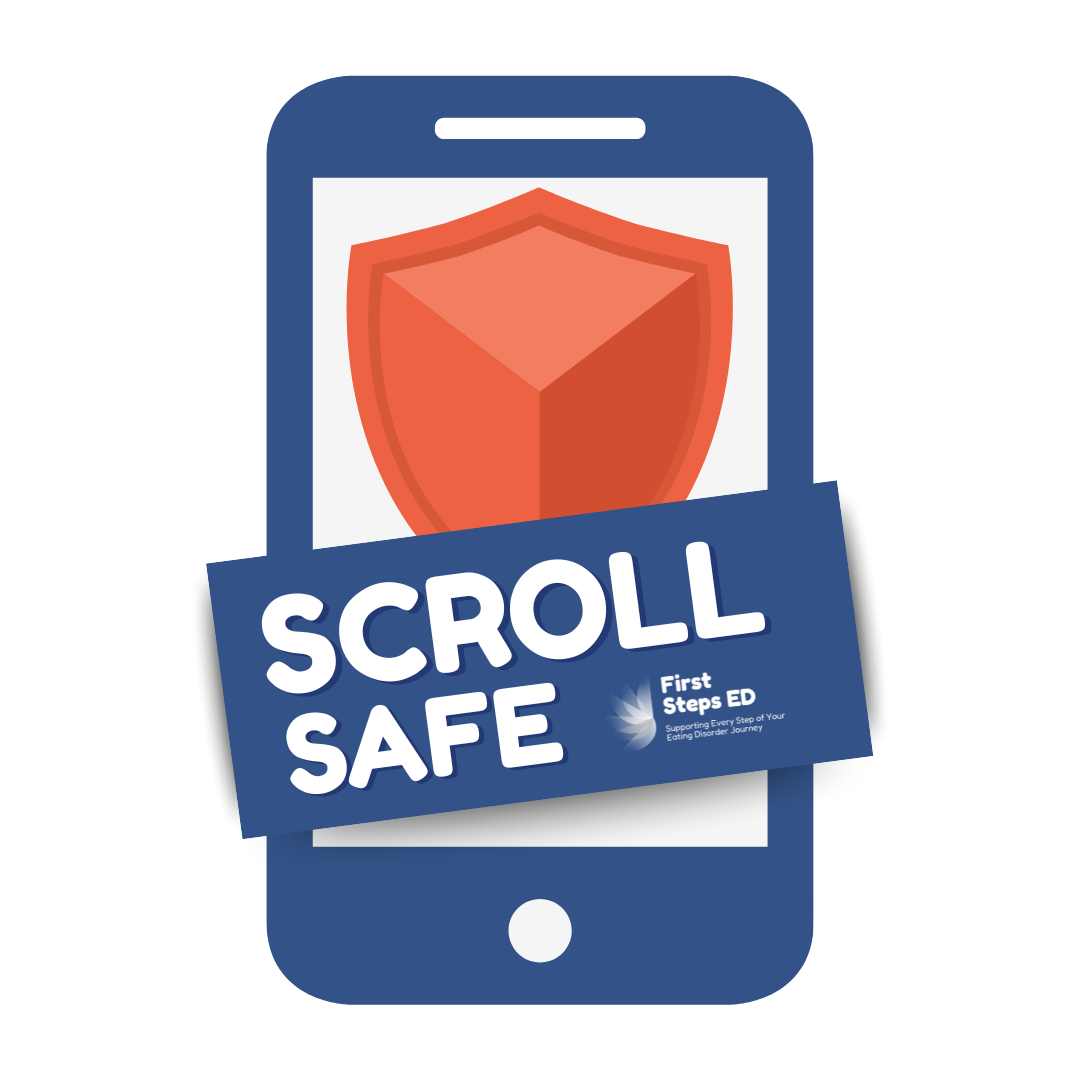Ask the experts: when does a diet become an eating disorder?
Welcome to our monthly ‘Ask the Experts’ blog, where we put forward some common and challenging questions about eating disorders to our First Steps ED experts. This month, we asked them:
When does a diet become an eating disorder – how do you know when someone needs help? And how do you help someone who doesn’t accept that they have a problem?
In a culture where dieting is normalised and weight loss is constantly celebrated, recognising when healthy intentions have crossed into dangerous territory can be difficult. This, combined with people often assuming eating disorders need to be towards the severe end of the spectrum to warrant psychological support, means the line between “being good” and being unwell is often blurrier than we’d like to admit.
The disguise of health and fitness
“Eating disorders can be disguised as, or perpetuated by, health and fitness goals,” explains Cleo Reeves, First Steps ED’s Psychotherapist and Training Lead. When someone justifies disordered thoughts and behaviours under the guise of wellness, it can be useful to help them reframe their motivations.
Cleo suggests asking: “If eating or exercising this way had all the effects on your energy, health, wellbeing and lifestyle but actually pushed you away from a beauty standard – how much would you engage in it?”
This powerful question encourages people to face what eating and exercise behaviours are really being used for. “Happy healthy relationships with food and exercise will see us feeling good, having more energy, being able to engage in the things we enjoy, take on challenges, be spontaneous, and maintain sound and happy relationships with ourselves and others,” Cleo explains. “Eating disorders work to the absolute opposite and take us away from all of these things.”
Disordered eating is becoming normalised
The line between a diet and disordered eating can be very fine and can go unnoticed by the person themselves, as well as those around them. Lauren Donaghy, First Steps ED’s Head of Programme Management, points to how ingrained diet culture has become: “This is particularly difficult given how commonplace conversations around weight and weight loss are in so many walks of life.”
What’s especially concerning is how disordered eating is becoming increasingly normalised. “Comments on people’s bodies are increasing, and weight loss is being celebrated everywhere,” Lauren explains. She points to the rise in the use of weight loss injections, where some people are consuming very limited and insufficient calories, experiencing side effects like hair loss, stomach issues, inability to stay warm, and lacking energy or motivation. “These side effects are still not enough to dissuade people from taking them. This is disordered but often normalised.”
How to recognise someone needs help
Our experts recommend looking out for several key signs that a diet may have become an eating disorder, or that someone might need support:
- The shift from want to must
Zoe Burnett, Psychotherapist at First Steps ED, recommends looking out for: “When exercise shifts from ‘I want to because it’s fun’ to ‘I have to because it feels like a rule’.”. She also highlights when going out for a simple coffee with a friend feels impossible because of the anxiety it brings, or when “food noise” – constant thoughts about eating, calories or control – becomes the daily background soundtrack, as signs for concern.
- Guilt taking over
Lauren describes specific warning signs including weighing everything they eat, sticking to a low-calorie limit and feeling intense guilt when eating above this, feeling guilty or uneasy when they don’t know exactly what’s in their food when others make it, and not allowing food just for enjoyment.
“A key point to consider is how someone feels when they don’t ‘stick to their diet’ or their ‘diet’ isn’t having the impact that they would like it to,” Lauren explains.
- Self-worth depends on food
Zoe describes another behaviour to look out for: “When your self-esteem starts to depend on what you eat, feeling ‘good’ or ‘bad’ based on what you consume.” This also includes when binge episodes leave you feeling stressed or ashamed.
- Changes in behaviour and relationships
Lauren identifies several behavioural changes including no longer doing things they used to enjoy, avoiding socialising (particularly where food is involved), becoming increasingly short-tempered, and a change in behaviour that may include seeming more animated or louder to distract from changes to their eating, or conversely, losing confidence and becoming quieter.
Zoe explains how to spot this warning sign: “Topics of conversation are mainly and frequently about weight loss or restricting food – amount or food groups such as carbs or fats.”
Opening the conversation
When you’re worried about someone, knowing what to say can feel overwhelming. “People can worry about saying the wrong thing when approaching someone who they think might have a problem with eating or over exercise,” Cleo acknowledges.
Her advice is to open the conversation with your intentions and be open and authentic. For example: “I’m concerned about you, but I’m worried about upsetting you or saying something wrong. I’ve noticed that… is everything okay?”
From her own experience, Zoe recalls what helped her most: “My husband once said, ‘You seem to have lost your spark.’ He didn’t comment on my food or exercise habits, but gently named what he saw in my mood and energy. That simple observation, without judgment, helped me recognise something wasn’t right.”
She recommends starting the conversation with what you’ve noticed, rather than making assumptions or labelling:
- “You don’t seem yourself lately.”
- “I’ve noticed you don’t have much free time, how are you feeling about that?”
- “I’m here if you want to talk.”
“You don’t have to avoid commenting on someone’s change in appearance entirely if it is part of the reason you are concerned,” Lauren notes, “but mainly focusing on the other changes to them as a person can move the conversation away from just weight.”
Create the right environment
It’s crucial that the conversation isn’t rushed. For teachers, Zoe recommends: “I’ve noticed a few changes that make me wonder if you’re struggling with eating or body image. Here are some resources if you’d like to look at them. If not, that’s okay too, but I’m here if you want to talk.”
Lauren emphasises making sure you’re in a quiet, confidential space, you both have time to talk and aren’t going to be interrupted. “Don’t have this conversation around other people, and especially cafes or restaurants.”
Questions to consider
Lauren suggests asking yourself or the person you’re concerned about:
- Is your main goal increasing health or losing weight/looking a certain way?
- Are you ignoring symptoms that suggest this ‘diet’ is negative for your health because you are losing weight or your appearance is changing?
- How do you feel when your weight fluctuates upwards temporarily?
- How flexible can you be with what and how much you eat without feeling guilty?
- If you were told that what you’re doing is detrimental for your health by a professional, would you continue because you are losing weight or your appearance is changing?
- How would you feel if you stopped losing weight with the diet you are currently on?
When they’re not ready
One of the most difficult aspects of supporting someone with an eating disorder is when they don’t accept they have a problem.
“It’s important to remember that someone might not be ready to get support,” Cleo says. “That can be really difficult as we naturally want to help the people we love. Don’t underestimate the power of letting someone know that you will be there for them when they are ready.”
Lauren also points out that helping doesn’t mean fixing things. “For meaningful change to take place, even when actively going to therapy, the person has to want to make a change themselves. But knowing that they have people around them who care about them, are worried for them and want better for them, can help them take that first step to reach out for support.”
“Offering to find resources together can really lighten the burden for someone who is struggling,” Cleo suggests. “Just letting someone know that you are there and that you care makes all the difference.”
While it’s important not to pressure someone, avoiding the subject completely can backfire. “It can make people feel like there can’t be much of an issue, it’s not serious enough to get help, or suggests others don’t care about them if other people don’t mention the changes they are seeing,” Lauren explains. “A person may not accept they have a problem right away or they may know they’re struggling but also not want to admit it for a variety of reasons such as guilt, shame or not wanting to stop, so revisiting the topic again at a later date can be helpful to show you are serious about your offer of supporting them.”
The path forward
Recognising when a diet has become an eating disorder requires us to look at the broader impact of eating or exercise on someone’s life, relationships and wellbeing. The signs may be subtle at first – a shift from enjoyment to obligation, from flexibility to rigidity, from health to harm.
When supporting someone who may not recognise their own struggle, the most powerful tool we have is compassion. We don’t need perfect words or immediate solutions – we simply need to show up and keep the door open for when they’re ready. As our experts remind us, recovery begins not with fixing someone, but with letting them know they’re not alone and reassuring them that support is available for them – not just for people who have severe eating disorders.
If you or someone you know is struggling with an eating disorder, remember that support is available. At First Steps ED, we specialise in compassionate and personalised eating disorder psychotherapy, tailored to your unique experiences, whether you have a formal diagnosis or not. Our private practice support starts from £25 per session. Click here for more information: https://firststepsed.co.uk/private-practice/


